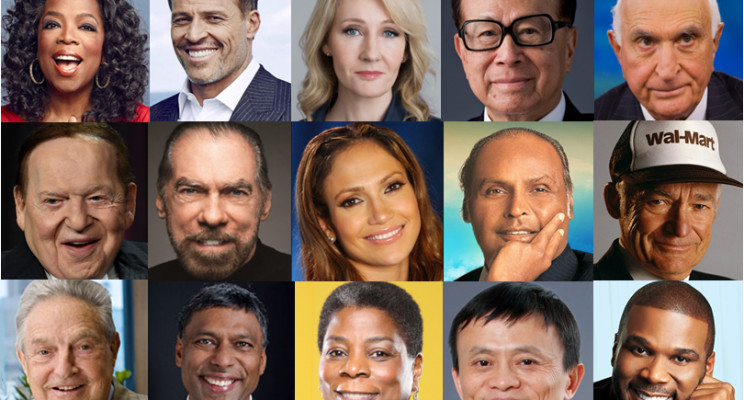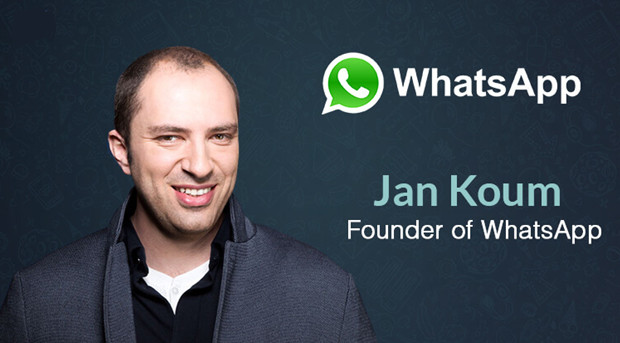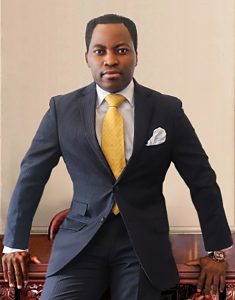The $22 Billion Rags to Riches Story
Originally published on LinkedIn August 24, 2017
Disclaimer: this article is not saying all the famous faces above transitioned from welfare to wealth. However, each individual faced a disproportionate level of hardship before making it big. Some much more than others. The article is about Jan Koum, the creator of WhatsApp. He was definitely on welfare or food stamps. It’s an inspirational true story of an immigrant, one which could be adapted as, and turned into a Hollywood movie. The burning question on our minds might be, how did he get there? Keep reading, 5 steps below. Please note, this is not intended to denigrate or malign anyone’s past, instead, it’s embracing life’s ups and downs.
It might not be a hundred percent accurate, but we can surmise that one of the positives of transitioning from being poor to being wealthy is perhaps the ability to retain and display some semblance of normalcy or status without ego, especially when interacting with regular folks. This behavior should be easy for non divas and non prima donnas to exhibit naturally, because they’ve lived there. Where is that? They’ve lived and passed through the proverbial road of hardship. To describe it vividly; it’s akin to gold being processed by fire in order to shine and glitter. Unlike gold or diamond, there are no guarantees with humans. Wealth and high status changes people around you to yes sir, and yes mam head nodding machines. The psychological effect makes new millionaires or billionaires feel like Super Women or Men. Additionally, the power and new found status draw out sycophants from the woodwork; whom are ready to execute each syllable one utters. That only makes the wealthy person drunk with power; hence a change in behavior, which is perceived oddly. Or as they say, she’s gone Hollywood on us. Although, some regular folks behave as if they live in Hollywood already; imagine their behavior if they manage to transition. These lot are the incorrigibles for which there’s no baptismal redemption. After getting there, does it mean only the wealthy people whom have gone through hardship are equipped with the emotional quotient to relate to everyday people? Although written about two years ago, I believe this is an apt time to publish this article. Some might say those born with a silver or golden spoon are not fit to lead the masses. As infelicitous as it may sound, generalizations are usually inaccurate. Situations should be judged on a case by case basis.
It’s not where, or how we start, but where and how we end that matters. Oprah and JK Rowling the author and creator of Harry Porter were on welfare. Ursula Burns, the former CEO of Zerox, grew up in a housing project in NYC. Billionaire Ken Langone the co founder of Home Depot, was once a ditch digger on the Long Island express way from 1954 -1956. Oprah didn’t have indoor toilet in her house growing up. Tyler Perry, John Paul DeJoria and Tony Robbins slept in their cars because they couldn’t afford rent for certain reasons at that point in their lives.
Jan Koum, the creator of WhatsApp started from the bottom and rose all the way to the top. The question is how did he get there? To add more context, Koum landed in the U.S., in 1992, with his mother and grandmother from Ukraine, age 16. He dropped out of San Jose State University and within twenty two years, ends up a billionaire. So what’s his, and the secret of the other famous people above, is it hard work, timing, right profession, luck, destiny or something else at play? I don’t have a 100% definitive answer because that’s a complicated question with an even more complicated answer. However, there’s one factor I can defend, which unquestionably positioned him for great fortune. He was in (IT) the only industry it could have happened within a relatively short period. Furthermore, he created a useful messaging tool. He also happened to be lucky that hundreds of millions used his App, and Facebook saw it as a threat and decided to buy. Luck is important, even Bill Gates attests to it. There were several other messaging Apps comparable to WhatsApp, however, Jan’s App was the chosen one. In a 2015 article, I projected by 2017 WhatsApp should have 1 billion people. As of today, it already surpassed that. To read that article, click the link below and scroll to the section titled WhatsApp monetization. He was in an apt profession, with the potential to facilitate his eventual outcome. Whichever you ascribe it to; hard work, timing, right profession, luck, destiny or something else at play, that’s a personal prerogative of how one interprets situations, perhaps based on background, religious beliefs or level of life experience etc.
What’s the lesson in the story? Most people may want to escape the rat race forever, however no one would want to voluntarily endure the extreme hardships, pain and failures these people went through. To that, I say; do what you love and love what you do. Do your best and if it’s meant to be, it’s meant to be. Never give up, never relent. You know McDonald’s story, he took over and expanded the business in his mid 50s. Most important, treat everyone respectfully, we don’t know what tomorrow has in store.
5 Reasons Which Contributed to Jan’s Success.
- Being at the right place at the right time: in Jan’s case, being in Silicon Valley helped raise the odds of mega success. There had to have been a threatened incumbent (Facebook). There had to have been large numbers of mobile phone users around the world, impossible even 10 years ago. Most important, without iPhone (the smart phone) which precipitated the creation of Apps, there would be no WhatsApp, because it’s just an App on a smart phone.
- Extreme passion, poverty, pain and being maniacally focused; these are the biggest triggers and motivational factors which propel people to stratospheric success. Put the theory to test, and you will find it seldom fails. Look at the picture above and pick out an individual that lacked all four ingredients, or didn’t have one or two, perhaps all four combined.
- Choosing or being in a profession which could lead to his outcome, e.g., actors, musicians and athletes. We all have our calling, so doing whatever one loves is what matters most. Frankly, I don’t know and can’t think of what else he could have done within 18 years from age 20-38, to net him $8.9 billion.
- “Ovarian Lottery.” It’s a term coined by Warren Buffet, his explanation; where one is born has a huge effect, and it determines the level of success one ends up with. Simply put, it’s the luck of being born or living in a country which enables one to maximize their talents and fulfill their dreams and destiny. If one is born in a country that is always engaged in wars, or born on a tiny island with little prospects or resources, obviously one’s chances of making a huge impact on the world diminishes significantly. Basically, if Jan created WhatsApp in Ukraine it wouldn’t have been as successful. It’s a small market and probably wouldn’t have done much to threaten Facebook, which led to the acquisition.
- The immigrant personality or mindset: most families, individuals or groups who move to Western Europe or the U.S., move for better opportunities, mostly. Their reasons range from escaping war, genocide to improving economic or educational standards etc. Even the Brits who immigrate to the U.S. today, or the ones that settled at Plymouth Rock, were seeking a better life, or were running from a deleterious situation. However, not everyone who goes to Western Europe or the U.S. is poor, some are wealthy but that’s a small percentage. First generation immigrants usually never forget what brought them over; their unbridled passion compels them to work too hard, which enables them to achieve greater success in less time, compared to their fellow U.S. counterparts. Most immigrants initially live together which saves money and they do not engage in what the indigenes of that country consider fun activities. Hence saving more money.
Which factor carries the most weight? Is it hard work, timing, right profession, luck, destiny or something else at play? Who knows, I don’t have a time machine to go back and review Jan’s life, and I don’t have a crystal ball which assigns percentages.
What’s the exact formula for his success? It’s different for everyone, one shoe doesn’t fit all. My suggestion, if it’s worth anything, do what you love, as long as you’re content that’s euphoric. We don’t take money to the grave, it doesn’t always add extra joy and it certainly doesn’t cure all our issues. If you’re great at what you do, and the stars align in your favor. We might be reading about you next.
Here are the names of individuals in the picture above from left to right. Oprah, Tony Robbins, JK Rowling, Li Ka-Shing, Kenneth Langone, John Paul DeJoria, Jennifer Lopez, Sam Walton, Sheldon Adelson, George Soros, Naveen Jain, Ursula Burns, Jack Ma and Tyler Perry.
From welfare checks to a $100-million payday
Conor was not part of the original article. However, I couldn’t resist especially since MSN published an article with a similar title, and his biggest fight is two days away.

P.S. I came across this well researched, informative analysis by Mitchell Harper titled The Conor McGregor Mindset.
About the Author
Digital Marketing Executive & Corporate Strategist. Ghostwriter to HNWI, fortune 100 & 500 companies. On LinkedIn, I write about Tech, Business Strategy, Marketing and Finance. Conceptualizing bold ideas, marketing, developing and refining corporate strategies for reinvention, growth and longevity are part of my expertise. Are you’re Startup, midsize business or big Corp.? It would be a pleasure, let’s talk about corporate/business strategy and Digital transformation.




